Melita Kiely: The media must do more to challenge stereotypes
As Editor-in-chief of The Spirits Business, Melita Kiely knows only too well the power of representation. Here, she explains how her team is doing the work, and why others in the media have a responsibility to help people feel seen.
As I write, I’m sat on a train as it trundles from the Sussex coast to the Big Smoke. I’m exhausted and energised in equal measure after a weekend at Brighton Pride. It is a wonderfully celebratory weekend. But we mustn’t overlook that at its core, Pride is a protest, deeply rooted in the fight for LGBTQIA+ rights.
Behind the glitter, the rainbows, and headline performers is an important message: an amplification of the LGBTQIA+ community, a critical reminder that equality matters, and a loud call to eliminate discrimination. And once the glitter has been washed off and the social media stories have expired, the duty to allyship and effecting change must continue.
“the media can be a powerful tool for shifting perceptions and challenging stereotypes.”
Over the course of the weekend, I lost count of the number of acts on stage who said: ‘I see you.’ Three simple words. Yet, to those from overlooked or marginalised communities, they can have such power. Visibility matters. It matters to all of us.
As a mixed-race woman (proudly half Filipino, half English), growing up – and even as an adult – I can tell you it has always been exhilarating to see a Filipino on TV. It’s only been in recent years, however, since conversations about visibility have increased that I have linked this largely to the lack of Filipino representation, well, everywhere.
The Scotch Whisky Masters and The Irish Whiskey Masters 2025 judging panel.
For too long, the whisky world has mirrored wider cultural imbalances and not given women the same visibility as their male counterparts. But the media can be a powerful tool for shifting perceptions and challenging stereotypes.
As editor-in-chief of the world’s leading trade publication for spirits, The Spirits Business, and the first woman to hold that title, I understand I have a role to play in how women in whisky are portrayed in the media. Magazines, newspapers, podcasts – media in any form is hugely influential when it comes to shaping the perceptions of any industry. After all, the male connotations still frequently linked to whisky largely stem from decades of the industry portraying a ‘masculine’ persona, with leather armchairs, crackling fires and a cigar. But times change, and so must whisky – and so must the media.
When editors and journalists make the effort to include a diverse selection of voices in their articles, to print images capturing people of different genders and ethnicities drinking whisky, to share stories, insights and experiences of women working in the industry, it sends a very different message – one of diversity, inclusion and a chance to change the narrative around whisky’s outdated stereotypes. We must actively position women within our stories to effect the change we want to see.
International Women’s Day panel hosted by The Spirits Business in 2024.
This also extends to events and panel talks. Just like the LGBTQIA+ community cannot be just for Pride, women in whisky are also not just for International Women’s Day. There is a wealth of knowledgeable women across the sector who would make insightful additions to any panel talk or tasting event.
For example, in July, we hosted a quartet of whisky blind tastings through The Global Spirits Masters Competitions. I’m immensely proud of our fantastic events team who not only organised the two-day tasting extravaganza but brought together a diverse group of judges.
Nine out of 15 of the judges were women, almost half of those were women of colour, and a few from the entire panel were LGBT. This unfortunately is still not the industry norm. But if other tastings and publications took this as a blueprint and followed suit, wouldn’t that be something?
“We must actively position women within our stories to effect the change we want to see.”
Progress like this is how you can challenge stereotypes, shift perceptions, and make space for those who otherwise remain marginalised and unseen. I’m a big believer in progress over perfection. The more those in the media endeavour to actively position women as whisky fans, as industry experts, and as an integral part of the global whisky community, the more we help women to feel welcome and inspired to explore the category.
Women have, after all, been part of the backbone of the whisky category for centuries. They already are whisky drinkers, blenders, distillers and experts. They deserve recognition. Let’s tell women, all women: ‘I see you.’






